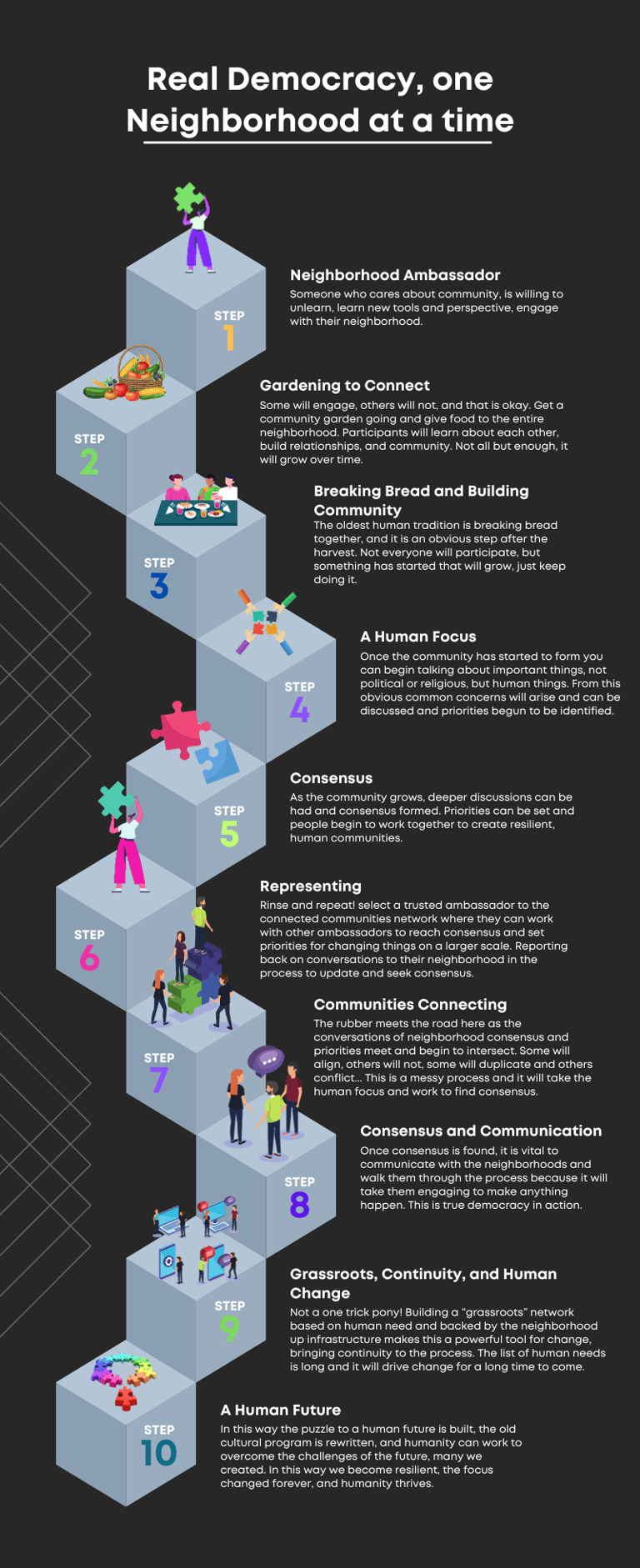Accepting the Shit Sandwich: Worse, expecting the shit sandwich
We should never expect or accept the "shit' sandwich out of hand. We should work together to change the environment where it is the "norm."
PERSPECTIVE
The Resilient Community Movement
12/28/20245 min read


Understanding the Shit Sandwich: A Cultural Metaphor
"The concept of the "shit sandwich" serves as a powerful metaphor for the unpleasant realities and toxic elements prevalent in modern culture. This term encapsulates the notion that individuals often find themselves in situations where they must accept mediocre experiences layered between moments of positivity, much like a sandwich filled with undesirable elements. In various aspects of life—be it in the workplace, personal relationships, or broader societal structures—people frequently encounter circumstances that are far from ideal, yet feel compelled to endure them in the name of stability or societal acceptance."
Societal acceptance, job security, political realities, all just ways of being bullied by a culture of bullying, the real meaning of the shit sandwich. Our entire culture is a toxic mix of misinformation, coopting of ideas, and bullshit, which is filling for a lot of sandwiches! We will never address bullying as long as the tenants supporting it are part of our culture, and they are ingrained in the fabric of it. The bullies are not stronger, nor are they the winners, they are simply better at manipulating the tools our society, provides them. Here is an answer to a question you all never thought to ask... we elect bullies because we are trained to group around them and support them so we do not get bullied, think about that a minute.
The complexities of the "Taker (bully)" culture in which we find ourselves is a phenomenon of programming and training that starts at birth with memes and popular culture often oversimplifying human experience, the realities are far more nuanced, reflecting deeply embedded emotional responses and survival mechanisms. People feel trapped in a cycle where criticism and negativity surround their daily experiences. This acceptance, however, does not come without consequences. It can diminish motivation, foster a sense of helplessness, and perpetuate a culture where individuals shy away from advocating for change. Understanding the "shit sandwich" offers an opportunity for reflection and a path to eventually change the framework. At every turn the supportive programming strengthens the culture of the "Bully" which we will need to recognize and "reprogram" together.
The Risks of Cultural Entropy and Its Implications
The acceptance of the 'shit sandwich' in society signifies a troubling trend known as cultural entropy, which refers to the decay of cultural values and norms that once provided cohesion within a community. When individuals and societies resign themselves to adverse circumstances—whether by normalizing toxic behavior, political corruption, or systemic injustice—they contribute to a gradual decline in the shared principles that bind them together. This complacency is not trivial; it sets the stage for serious ramifications that can ultimately lead (is leading to) to societal breakdown.
There are several indicators of cultural entropy to be mindful of, including an increase in apathy towards societal issues, diminished individual accountability, and the erosion of trust in institutions. Historically, cultures on the brink of collapse have exhibited similar patterns, highlighting the concept of a tipping point. This scientific principle suggests that small, seemingly insignificant actions can accumulate, resulting in significant changes that propel a society towards its demise. For instance, the fall of the Roman Empire illustrates how neglecting civic duty and normalizing corruption can precipitate a large-scale decline.
Moreover, the risks associated with cultural entropy extend beyond theoretical implications. Real-world examples abound—consider the rise of extremist ideologies in environments where traditional values have been inadequately defended. These ideologies thrive in the gaps left by a disengaged populace and can lead to detrimental outcomes, including civil strife or even genocide. Furthermore, data from sociological studies suggest that countries experiencing high levels of cultural entropy are more vulnerable to crises, be they economic, social, or environmental.
Recognizing the signs of cultural entropy is imperative for preemptive action. Failure to confront the underlying issues, allowing acceptance of the 'shit sandwich' to become the norm, poses dire risks not only to the existing social fabric but to humanity as a whole. As individuals and communities, we must foster vigilance and engagement to circumvent the potential consequences of cultural decline.
Choosing a Different Path: The Science of Tipping Points
The concept of tipping points is crucial in understanding the dynamics of social change. A tipping point occurs when a relatively minor development suddenly causes a significant shift in societal behavior or norms. This phenomenon highlights the power of collective action in influencing an entire culture. By uniting together, individuals can reject undesirable practices, often summarized as the 'shit sandwich' mentality, which implies accepting unacceptable situations as a norm.
Several factors contribute to how tipping points emerge. Firstly, alignment of shared values among group members is essential. When individuals recognize the discrepancies between accepted norms and their core beliefs, they become motivated to lead change. Secondly, access to effective communication channels can amplify messages and spread awareness rapidly. Social media platforms, for instance, have historically played a vital role in mobilizing communities, showcasing how a collective voice can foster significant cultural shifts.
To encourage positive change within communities, individuals can adopt several actionable strategies. Engaging in grassroots initiatives, such as organizing community discussions or workshops, allows individuals to share experiences and cultivate a unified front. Furthermore, establishing partnerships with local organizations can enhance outreach efforts and solidify support for transformative movements. Continuous education on relevant issues also empowers individuals to act confidently, increasing community resilience against cultural decline.
Several successful movements exemplify the effectiveness of collective action in shifting societal paradigms. For instance, the civil rights movement in the 1960s, which united diverse groups advocating for equality, showcases how concerted efforts can challenge systemic injustices. Similarly, recent environmental movements demonstrate how passionate individuals can sway public opinion and demand policy change. These examples serve as reminders that every individual possesses the potential to contribute to cultural transformation by choosing a different path and collectively working towards a common goal.
Embracing Change: Building a Better Future Together
In addressing the concept of accepting the 'shit sandwich,' it becomes clear that perspective and collaboration play vital roles in fostering meaningful change. Individuals and communities alike must shift their mindsets to view challenges as opportunities for growth, rather than obstacles to be overcome. This approach not only enhances personal resilience but also serves as a catalyst for collective action. Through shared understanding, we can cultivate an environment that encourages open dialogue and innovative problem-solving.
Engaging in proactive discussions about the issues at hand is essential for promoting a culture of inclusivity and progress. By inviting various stakeholders into the conversation, we create a platform for diverse perspectives and ideas. These dialogues can lead to better decision-making and heightened awareness of the complexities within our communities. Recognizing the value of every individual’s contribution encourages a sense of shared ownership over the problems we face, motivating us to work collaboratively towards solutions.
To further facilitate this cultural shift, it is important to establish clear steps that promote community improvement. First, creating spaces where individuals feel safe to express their thoughts and feelings without judgment encourages openness and honesty. Additionally, forming focused groups around specific challenges allows for a more organized approach to problem-solving. These groups can brainstorm, implement initiatives, and track progress together, reinforcing the notion that every effort counts.
Furthermore, leveraging technology to spread awareness about communal issues can amplify our collective voice. Utilizing social media platforms, for instance, enables us to reach wider audiences and gather support for initiatives that resonate with others. Ultimately, by combining individual action with communal support, we can envision and work towards a better future, embodying the change we wish to see. This commitment to collaboration will enable us to navigate the complexities of our society, empowering us to transform the ‘shit sandwich’ into a feast of possibilities.
Time to wake up and find our humanity, entropy is already having its way with us...
Thoughts on a human future... ~The Resilient Community Movement


The Resilient Community Movement
In today's ever-changing world, the importance of fostering resilience within neighborhoods and communities cannot be overstated. By facilitating connections among residents, we empower individuals to share their stories and experiences, creating a strong support network. This collaborative spirit not only enhances the well-being of community members but also amplifies their voices, ensuring that their unique human needs are recognized and addressed.
Contact and Connect
info@reseco.org
© 2024. All rights reserved.
